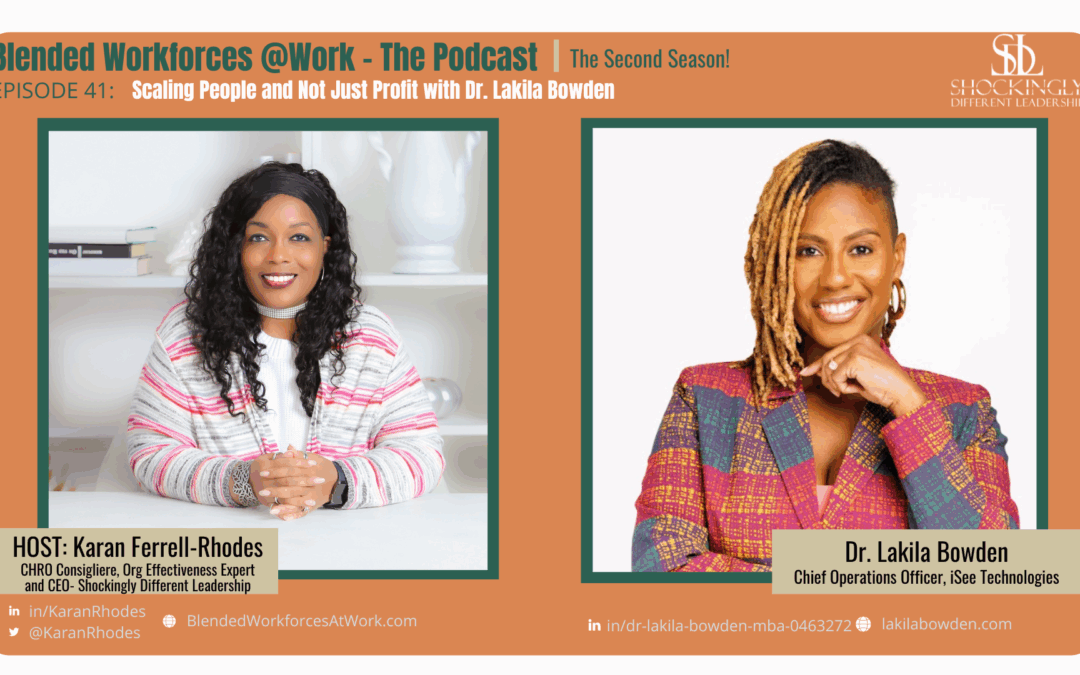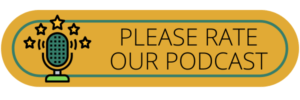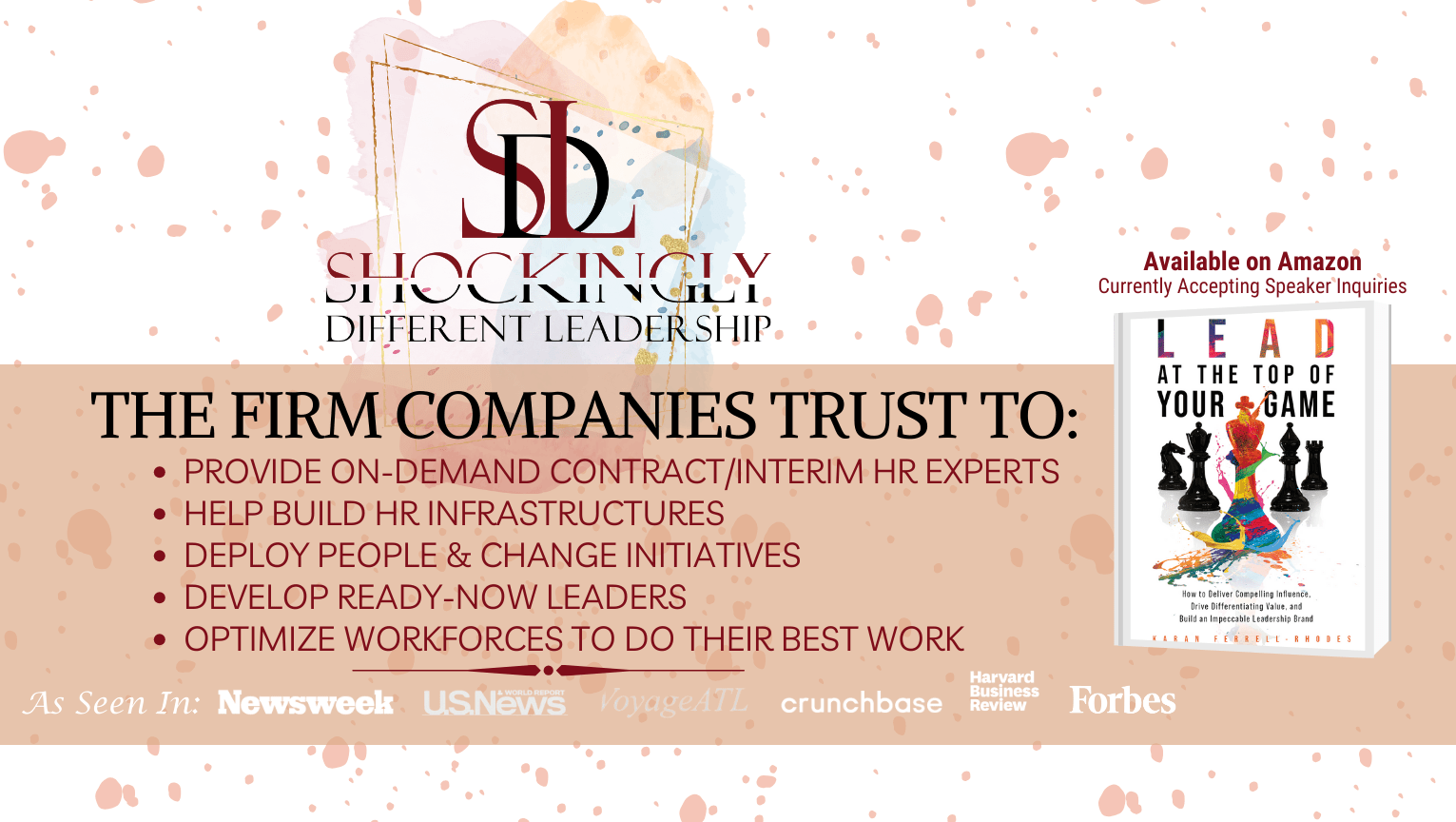IN THIS EPISODE, KARAN FERRELL-RHODES INTERVIEWS DR. LAKILA BOWDEN
Dr. Lakila Bowden explores the challenges and opportunities in blended workforces, emphasizing collaboration among traditional employees, contractors, and technology. She highlights the value of inclusive leadership, workforce wellness, and celebrated performance advocacy. She also introduces her upcoming book, focused on self-care and empowerment for high-achieving women.
Dr. Lakila Bowden is the Chief Operating Officer of iSee Technologies, and shares how her company transforms workplace culture through inclusive leadership and practical experience.
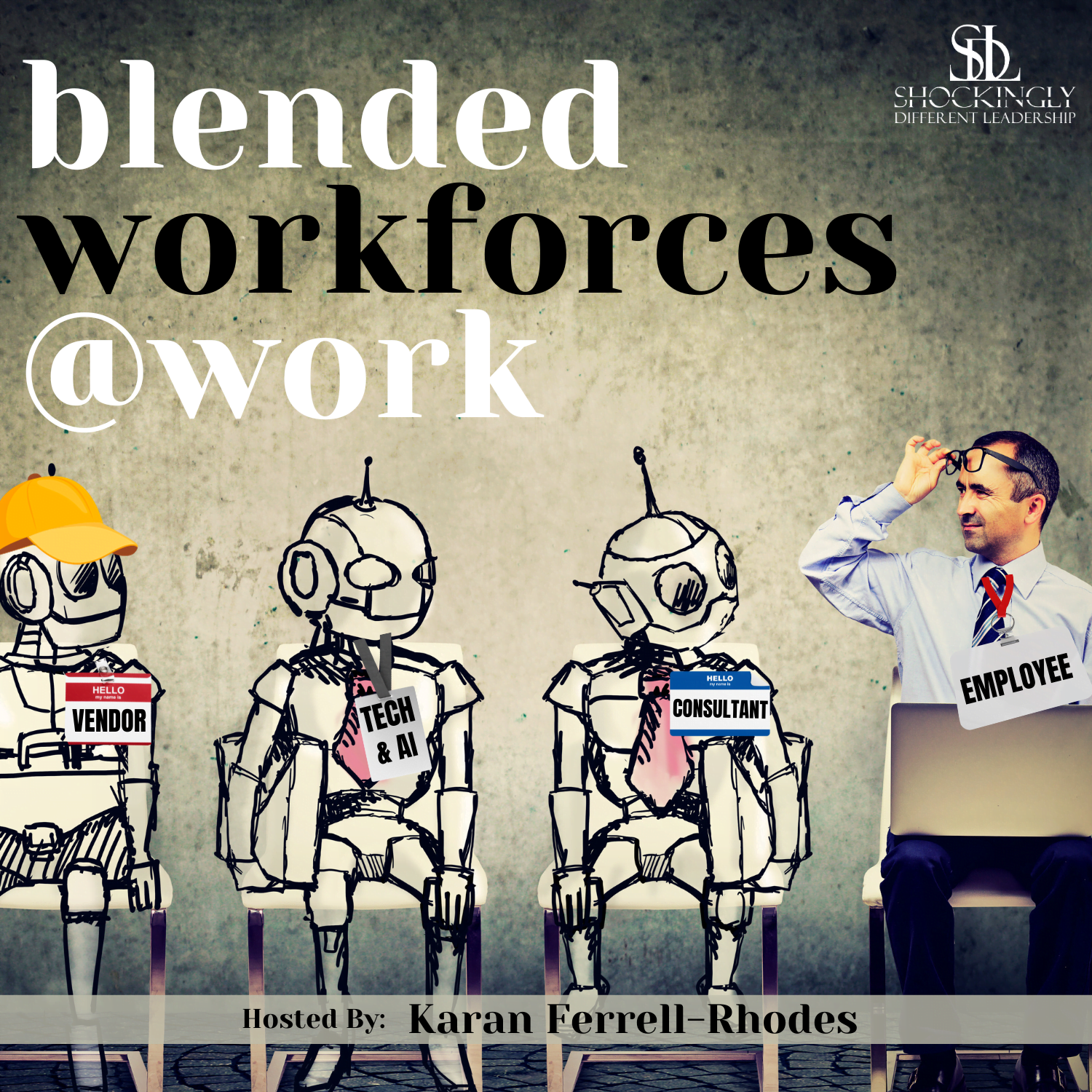
Posted by
SDL Media Team
Rather view our video podcast?

WHAT TO LISTEN FOR:
- What is a blended workforce?
- Why is it essential to eliminate silos in blended teams?
- How can inclusive leadership improve workforce wellness?
- What is celebrated performance advocacy?
- Who are the ideal clients for iSeeTechnologies?
- Why is executive leadership support essential for training programs?
“You will have better collaboration when both sides share what they need.”
FEATURED TIMESTAMPS:
[02:22] Dr. Lakila’s Personal Life
[04:16] Founding iSee Technologies and Expanding into Leadership Development
[12:11] Challenges and Opportunities in Blended Workforces
[18:58] Signature Segment: Dr. Lakila’s entry into the LATTOYG Playbook: Inclusive Leadership and Workforce Wellness
[22:03] Ideal Client Profile and Upcoming Book
[26:26] Signature Segment: Dr. Lakila’s LATTOYG Tactic of Choice: Leading with Executive Presence
[28:13] Contact Information

ABOUT DR. LAKILA BOWDEN:
Geoffrey Toffetti is the CEO of Frontline Performance Group (FPG), based in Florida. He leads the company in partnership with over 2,500 hotels across more than 100 countries, helping generate millions in revenue for major hospitality brands such as Hilton and Marriott. His career in hospitality began as a valet, where he developed strong sales skills that shaped his professional path. Before joining FPG, Toffetti was the first employee at Workforce Logiq (formerly ZeroChaos), where he advanced to Vice President, overseeing contract workforce strategies and acquisitions.
Since joining FPG in 2011, he has played a pivotal role in the company’s growth, securing the Waldorf Astoria as its first hotel client and driving global expansion. He is now focused on extending FPG’s service-based sales solutions into the Food & Beverage sector.
LINKS FOR DR. LAKILA:
- Personal Website: lakilabowden.com/
- Company Website: iseetechinc.com/
- LinkedIn: linkedin.com/in/dr-lakila-bowden-mba
- Instagram: instagram.com/lakilaj/
ADDITIONAL RESOURCES FOR YOU:


Episode Sponsor
SDL is the go-to firm companies trust when needing to:
- supplement their in-house HR teams with contract or interim HR experts
- implement leadership development programs that demonstrate an immediate ROI and impact on the business

Episode 41 | Scaling People and Not Just Profit with Dr. Lakila Bowden
Lakila Bowden 00:00
There’s always going to be a need to develop people in all of these different ways, whether it’s from an accessibility standpoint or a workforce wellness standpoint. It’s how people show up and allowing them create curating spaces where they can show up motivated to perform at their best.
Karan Rhodes 00:03
Blended workforces are one of the hottest talent strategies today, where employers are using a mix of traditional employees with external resources like independent contractors, coaches, consultants, vendors, and technology solutions, all in order to enhance competitiveness, ensure cost flexibility, and expedite business goals. But how are the successful companies infusing blended workforces into their business strategy? And what are the critical success factors and pitfalls to avoid during implementation? And on the flip side, what does it really take for suppliers to improve their chances of finding and landing contract opportunities? The devil is in the details, my friends! I’m your host, Karan Ferrell Rhodes, and it’s time to get smarter about Blended Workforces at Work!Hello again, my superstars. This is Karan, and welcome to another episode of the blended workforces at work podcast I am so honored to have on today’s show Dr Lakila Bowden, who is the Chief Operating Officer of Isee Technologies, and that’s little I capital S EE technologies. I see technologies. And I see Technologies is a firm that provides people development and consulting as well as training facilitation, with an emphasis on innovative inclusion, and she’s worked with hundreds of leaders to navigate them on how work should get done, and she’s had a ton of experiences. So I’m so excited to have her on today’s show to share a few of her own perspectives and insights with us. So welcome to the show, Lakila!
Lakila Bowden 01:37
Karan, thank you so much for having me. I’m excited to be here, and I love the work that you’re doing.
Karan Rhodes 01:43
Oh, I love the work that you’re doing as well. All right. Well, before we dive deep, because I know in our pre conversation, we were just rocking and rolling, we could talk for hours, but before we dive deep into our conversation, we always love to know just a tad bit about our guests. So for just as much as you feel comfortable, can you give us a sneak peek into your life outside of work?
Lakila Bowden 02:07
Absolutely, absolutely. So my life outside of work is really a part of my life inside of my work. Also, I pride myself on being a light that ignites the light in others. I have an amazing husband who is just my best friend the whole wide world, we have an incredible three year old who is a blend of both of our lights and very, very busy at all times. And I’m a new author. I have a book coming out in the fall called the show now principle, and it’s a high achieving Woman’s Guide to prioritizing self care, self promotion and self celebration. So when I say that, like my personal life, in my work life, blend it that self celebration piece, that self care, I bring that into my work as well as I live that every day. So it’s exciting to be able to walk the walk in and the talk in both areas.
Karan Rhodes 02:54
What I love about that is one of the biggest areas that leaders or individuals professionals struggle with. I know you’re focusing well on women, maybe, but it’s something everybody struggles with. I can’t tell you how many executive leaders I’ve had to, you know, talk off the ledge, if you will, and and say you got to prioritize yourself and self care. And so I love where you’re going with that. We’re going with that. We’re going to talk a little bit more about a few of the highlights that you’re going to include in the book. But I want to encourage listeners to really think deeply about this, because it’s one of the biggest derailers if you don’t prioritize, you know, kind of your self care and and what’s best for you. So early. Congratulations on the book.
Lakila Bowden 03:38
Thank you. Thank you. I appreciate it. I appreciate it. Super excited about that.
Karan Rhodes 03:41
Awesome, awesome. Well, let’s go ahead and get started with letting you, I know I didn’t do it justice, but I’d love for you to share maybe a high level of your professional career thus far, a few highlights or milestones, and then what led, I think it’s you and your co founder, to find, found ISee technologies,
Lakila Bowden 04:01
Absolutely. So I’ll take it back. I went to North Carolina, A and T State University in undergrad. Had a great experience there, Aggie PRI and from there, and that led me directly into corporate. So my first role was a financial analyst with General Electric, and I knew pretty quickly that finance in that way wasn’t where I wanted to be. So, you know, had a great experience there, and GE was a great springboard into the rest of my corporate career. It led me into operations. And that took me from an industrial supply company to healthcare, and I kind of kind of stayed in that healthcare area. I had a great experience continue to kind of travel up the corporate ladder, but I knew there was more and there was greater for me, so I ended up retiring. She’s in the retire 37 from corporate. Wow, right? Exactly. I just knew I didn’t want to wait until my 60s to go do things that I wanted to do, and I knew I could create just value and abundance in my life for myself. Take my talents elsewhere, and that’s what led. Actually to founding IC technologies, which is the company I founded along with my sister, Dr Camille Richardson. Interesting fact about my sister is that she was actually born totally blind, so has never been able to see, and at the time, she was doing assisted technology training for people who had lost their vision. And so I took my corporate expertise, blended it with the training and development work that she was doing in that space. And that’s where the i Little, i, s, e, e came from. And we expanded beyond doing accessibility training or into leadership and development training, and it just kind of took off from there. And so this point, we’ve worked with some of the largest corporations in the world. We’ve worked with the Walt Disney Company, BASF crab times. We’ve done work in the government space, helping with training and development in government, and it’s been a wonderful journey for the both of us. We’ve impacted a lot of lives, and we have a team of trainers and facilitators and therapists that because we also focus on workforce wellness, it’s just been an expansive journey that I could not have imagined being as developing the way that it has. But I love that piece. I love the adventure of life and just kind of saying yes. This has all been a result of saying yes, saying yes to the unknown, saying yes to the exciting and sometimes the scary.
Karan Rhodes 06:16
Right, right. It can be extremely scary. So interesting about that. I knew another podcast on leadership, and we oh, it’s probably been over a year now, because this is our fifth year of the other podcast. But anyway, we’ve had two guests whose companies, they were CEOs of companies that focused on accessibility technology, and they work with like corporations and organizations on how to ensure all of their technology systems had accessibility components of different types based on the workforce needs. And I just found it such a fascinating industry that wasn’t as astute in there were companies that focused on it out there, but it was just fascinating. And to see what you all have done, how you started there and have expanded all in the, I guess, umbrella of professional development that is inclusive for everyone, it’s just amazing. So I just want to give you your kudos up front.
Lakila Bowden 07:14
I will take them. Thank you very much. And I’m proud of myself. I’m proud of my sister, for the both of us moving in this direction. So our company is very focused on people development. We’re a people first development company because we believe that people don’t take breaks from being people. So neither should an organization’s efforts to support them, right? Like, no matter what’s going on in the political environment, there’s always or a business environment, whatever, there’s always going to be a need to develop people in all of these different ways, whether it’s from an accessibility standpoint or a workforce wellness standpoint, it’s how people show up and allowing them create curating spaces where they can show up motivated to perform at their best.
Karan Rhodes 07:55
I love that. Okay, you got to give us the inside scoop. How is it working with your sister in a business.
Lakila Bowden 08:03
We love it. So my sister and I are only 10 and a half months apart in age. We’ve always been very, very close, you know? And I have my mother and my father took credit for that, but especially my mother, she always instilled, especially in Camille, that spirit of independence. So anything that I was doing, she was doing, we were growing up. So now, as adults and running this company together, she brings a certain insight. And I always say this about my sister. She was born without sight, but she’s always had vision, and that vision has I was on a very clear corporate track. She was on a very different path that led her into entrepreneurship, because she continued to be rejected when she attempted to apply for traditional roles, because people couldn’t see beyond the fact that she couldn’t see, right? So it’s been a really phenomenal experience to work together and grow together and create generational wealth for our families.
Karan Rhodes 08:53
Absolutely, the very first person that I hired when I became a manager people, deaf individual, and she was at the time in her mid 30s. And believe it or not, I was younger than her, but I was at a higher level than she was, and she used to share how much she struggled with being able to find positions or having opportunities open up to her, and I still remember to this day. You know, this was years and years ago, when initially offered her the the job, she just broke into tears, just absolute tears around it. But she was smart as a whip, I mean, and I tried to embrace that
Lakila Bowden 09:38
There’s a lot of untapped talent in the disabled community, because oftentimes people look at someone with a disability from a lens of needing help or being incapable, when really there are all these other ways that people who are disabled adapt that require them to be strategic and creative and problem solvers, and those are. All things that any organization can benefit from.
Lakila Bowden 10:03
You know. So we look at people from a lens of capability and help organizations. You look at people from a list of capability, my sister really brings that lived experience to the table and and she’s just, she’s fantastic, she’s fun, she’s fly. You’re gonna have a good time. You know.
Karan Rhodes 10:03
Oh, absolutely,
Karan Rhodes 10:18
Gonna have a great time
Lakila Bowden 10:19
We’re gonna have a good time together. Yes. And we’re gonna bring that spirit to ISee technologies.
Karan Rhodes 10:24
Oh, goodness, wonderful. I feel like I can have a glass of wine with you ladies, and we could just have a wonderful time.
Lakila Bowden 10:32
A wonderful time. She’s probably going to upgrade to an Espresso Martini, because that’s just her. That’s Camille.
Karan Rhodes 10:38
Oh, leave us little peons, uh huh…, I’m a wine gal, so I’ll have to go there. Well, Lakila, you’ve worked with so many people of different types, and on this podcast, we talk about blended workforces, which, the way we define it is how work gets done and in the workplace. And it can be a combination of your traditional employees. It can be external talent like consultants or vendors or suppliers, or it could be technologies that help out. And all companies are leveraging these days, all different types of mixes to get work done, but people are still having to man it through and and focus on their performance, even when there are multiple types of I’ll say ways work is getting done at their organizations and companies. So I’m just curious for you, you know, it’s all about performance and production at the end of the day, but I’m wondering is, in your experience, have you witnessed any maybe blind spots or things that people miss when they are at work that may affect their job performance. Or do you have a tip for people you know to keep in mind when they’re having to think about how the company is run, they might have to work with somebody that is brought into the company, or they might have to learn a new technology?
Lakila Bowden 11:54
Yeah, absolutely. So, you know, I love this conversation around a blended workforce, because we are, as you mentioned, we’re in a stage where we want to be able to take advantage of all the different resources that we have, whether those are people resources or technology resources. And I think one of the core blind spots that’s really easy to eliminate, so I like cheat codes. I like the low hanging fruit that we can really get to pretty quickly. And the first thing that we could do is kind of take those silos away and think about our organizations in terms of team right? Team can be a salaried person, a team member can be a 1099, person. But it can also be technology that is a part that team members are leveraging. And if we’re thinking about it from that perspective, a team is focused on a common goal, that blind spot of saying, Well, this is an outside contractor. We tend to, once we do that, we’ve already put ourselves in a frame of mind. We’re there on the outside, and we’re the inside people. We’re the salary people. Or if you’re someone that’s a contractor, you’re coming into an organization where you don’t necessarily feel like you’re a part. And we can create that sense of belonging and break down the barrier and just focus, from a standpoint of being a team focused on a common goal, that a quick and easy Eliminator, a barrier that really doesn’t have to be there, right? Like, how can I support you in an organization? How can you support me? And then we’re all working collectively towards a common goal?
Karan Rhodes 13:16
Absolutely, I think that it’s extremely important. And you know, one of the things that I always advocate to my clients is not only to consider them as members of the team, but there were ways to do it that like in the US, you’re not crossing IRS guidelines, per se to there are many ways to keep them included, onboarded greatly and promote great interactions, you know, with the the rest of the organization. But I do think as well for, say, the external talent coming in, in particular, you know, there’s some ownership there as well. You know, to speak up and ask for the types of things that will make your contract or your engagement easier with them. You think that this as well, that is a two way street?
Lakila Bowden 14:02
Absolutely, absolutely. I mean, there’s always going to be you’re going to have better collaboration when there’s communication on both sides. In terms of, what do you need? What does support from me look like and hear and expressing that as well, what does support for me look like? And finding that common ground that communication, because it’s going to change right when things are rocking and rolling and rolling and everything’s working perfectly, communication flows more easily. We reach hiccups, or when we have disagreements. I mean, we are human again. People don’t take breaks from being people. People incomes with a lot of what happened to you on the way to work this morning. You might have run this traffic, or your kids were getting on your nerves, or whatever. You’re bringing your life into the situation. So I think that we have to always respect that and and communicate. You know, communicate appropriately. Think of again, keeping that common goal in mind. We’re here to get something done together. So how can we make each other’s lives easier? Remove barriers, block and tackle from one another, but it takes both sides to communicate that,
Karan Rhodes 14:59
Oh, absolutely. Absolutely. Well, I know you focus a lot on, like, inclusive leadership. And you know, what are you seeing? What is your firm seeing these days around still welcoming, inclusive leadership, and what are some things that you coach your clients on? You know, especially in this kind of highly charged environment,
Lakila Bowden 15:20
Yeah, charged is a good word to describe it.
Karan Rhodes 15:24
The right correct word, right?
Lakila Bowden 15:25
Right. I think it’s the correct word. Number one is like, let’s recognize, acknowledge the elephant in the room. That to your point, things are charged right now. People are more on edge than they ever than they’ve been in a while, and we’re bringing those things into an environment where we need to get something done right, like in our workplace. So I think acknowledging it, number one, not trying to ignore it going on with business as usual. A lot of our focus in our work is around workforce wellness and helping people to master those invisible load that they’re carrying. And that is a piece of heart of it, even coming out of the pandemic that created an environment where there was already a lot of stress going on that was kind of in an undercurrent situation, but it brought a lot of that took to light. So really mastering those invisible lows works better when we’re being very transparent about what’s going on, and then providing tools and resources so that people feel like they have a place where they can say, hey, this is uncomfortable. And also providing tools and resources so that people can continue to be and feel productive in these spaces. One of the things that I often talk about is toxic resilience versus non toxic resilience. And toxic resilience looks like just trudging ahead, keeping on, we’re gonna keep on, keeping on as if nothing is going on, right? Like just we’re just gonna get it done, no matter what non toxic resilience looks like, equipping ourselves with the tools, whether those are self care tools that we need or tools in terms of support that we need in our work environments to get the job done, but do it in a way we’re not completely depleting ourselves. And I think that unfortunately in the corporate world, there’s kind of been an expectation that’s been set, that that’s more leaning towards the toxic resilience side of things. And organizations like mine, we come in, I see technologies comes in, helps organizations kind of flip that so that people are still showing up. People are still performing, but they’re doing it in a way that is non toxic, where they have the support that they need to be able to show up as the best version of themselves,
Karan Rhodes 17:27
Absolutely. And what company wouldn’t want something like that, right?
Lakila Bowden 17:30
Precisely.
Karan Rhodes 17:31
I do quite a bit of work on talent governance for like board of directors of companies. You know how they should think about the oversight of their talent and talent strategies when organization or company. And you know, I know dei is a dirty word in some media right now, but you can vouch for it right. There’s tons of research that show how important inclusion in dei activities and sustainability activities are to a company success, and what I’ve witnessed is that they may not say it publicly and advertise it publicly, but even at board levels, they know how important creating productive workforces are and all the components that need to be included, and So they’re struggling with how to ensure it happens, but there are large groups that still want to make it happen and provide offerings and consulting for that. So I say all that to set it up to ask you the question, I guess the companies that are still embracing these concepts, those are the ones that you all probably naturally attract,
Lakila Bowden 18:39
Absolutely
Karan Rhodes 18:40
Versus , uh…right?
Lakila Bowden 18:42
Yeah, we can keep it real for some over the last couple of years, it’s really just been checking boxes
Karan Rhodes 18:46
Yeah.
Lakila Bowden 18:46
And lip service. But organizations that were genuinely committed before it became trendy, and now that it’s out of style, those organizations remain committed, right? Because, to your point, the return on investment is there, greater productivity, greater innovation, better retention. It only makes sense, like, when we’re in a space where we feel like we belong and we’re wanted, in our vow, in our we’re appreciated and their share of values, we’re going to show up better, right? Like we’re going to contribute more. We’re going to go the extra mile. That’s just human nature. Like, I want to be here, so I want to make this a space that is indicative of what I want to experience. It is such an important distinction to make. One of the things that I’m a huge advocate of, and that we provide training around, is something that we call celebrated performance advocacy, and that’s where we focus on people’s strengths, and celebrating those strengths and creating a culture of celebration, where it whether it’s small wins or big wins, it creates a momentum of winning, where people want to do more of that, and the environment is one that is celebratory. It makes all the difference in how people show up, and that is something that you have to be intentional about, right? Like it doesn’t just happen, especially with all these outside factors. Careers that come into play. So that’s one of my favorite trainings that our organization does. Is one that we initially kicked off with the Walt Disney organization. And you know, we receive Ray reviews, and all the participants, we had them do an exercise where they between the sessions they were they were a week apart, and between the sessions where they just took notes on things that we’re proud of, things that they could celebrate about themselves, and we had so many people come back and say, I didn’t even realize how much I was doing that that I’m really proud of, like that, there’s a reason to celebrate even it’s a mini celebration. This doesn’t have to be popping bottles, but it can be, you know, whatever works for you, but you know, just taking that time to acknowledge that on a micro level starts to expand into the macro level, and then it becomes a part of the culture of your organization.
Karan Rhodes 20:49
Yeah, absolutely, it’s reinforced too. Because if everybody’s focused on it and celebrating their own wins and celebrating others, it’s almost like a great disease that’s contagious.
Lakila Bowden 21:00
Exactly. It becomes a part of the metrics that we determine our success by, and what we measure gets improved, right? So one of the things for me, having spent over 15 years in corporate when I moved into this space of entrepreneurship and now working with corporations as my client, I wanted to help usher in the environments that I wish that I had experienced in some pockets. I did. I worked with all spectrums when I was in corporate where organizations who really got it right and then other organizations who really got it wrong. So I know, you know, I’m able to bring that lived experience into our organization and make sure that that that spirit is maintained through our team, through our facilitators, and the organizations that we work with, that we partner with.
Karan Rhodes 21:43
Oh, I love that. Now, who’s your ideal client profile?
Lakila Bowden 21:47
Our ideal client? Pro… That’s a very good question. We are largely industry agnostic. We work one of our largest clients is the global chemical company like I mentioned. We also we work with Disney, so but that those larger organizations that have a commitment to leadership and development they already have that’s a core, fundamental part of how they operate and what they think is important, because they tend to be the ones that have not only the dollars to invest, but also the commitment from executive leadership to support these programs. Because if it’s not important, if it’s not on the dashboard of things that are going to be measured, it’s not going to happen. But like I said, we’ve also worked with government organizations as well, and those are large organizations regionally that have brought us in one region, and then we’ve kind of spread throughout other regions, but they have defined kind of training and development commitments within the organization.
Karan Rhodes 22:38
Wonderful, for just a few minutes. I’d love to get just a sneak peek or a highlighter one point if you can share that little bit more about your upcoming book, the Sho Nuff Principle. I think it’s the Shon Nuff Principle, a high achieving Woman’s Guide to self care and self promotion and self celebration, and it’s about to be published. But can you just give us a high level nugget out of what’s coming. So people can put it on their calendars to make sure they pre order
Lakila Bowden 23:06
Absolutely. So the Sho Nuff Principle is coming out in the fall and October of 2025, if you haven’t when, if you can’t think of the last time you read a book where you just had a great time, this is the book for you, because this, I wrote this book to be a celebration. It’s about celebratory self care, and I’m providing what I call the self care on self celebration cheat code so easily accessible, largely highly impactful, ways of shifting your priorities around self care and around self celebration in a way that uplifts women, high achieving women, as well as impacts the communities around us. So I always, one of the things that I always say is, you know, everyone’s familiar with the saying, Give a man a fish, he’s going to eat for a day. Teach a man the fish, and he’s going to eat for a lifetime. And that’s great for that guy and all those fish that he’s eating up. But what about everybody else?
Karan Rhodes 23:59
Very true.
Lakila Bowden 23:59
Teach a woman to fish, and the village will eat for generations to come.
Karan Rhodes 24:04
Amen to that. Yes!
Lakila Bowden 24:05
So this book is teaching women how to fish for their self care, for their self celebration, for their self promotion in a way that benefits the village. I am super excited about it. It’s filled with antidotes with clients, anecdotes from clients that I’ve worked with, as well as some of my own personal experiences and stories. And it’s fun. It’s a total celebration. I think book clubs will enjoy it. Organizations that have development programs will enjoy it, and it’s a good read.
Karan Rhodes 24:34
Oh, wonderful. Well, we’ll definitely have you know information in our show notes on how people can find you and maybe connect and stay in touch on your website or email list to get updates on you know when it’s actually published, but early, congratulations on that.
Lakila Bowden 24:51
Thank you. I appreciate that. I’m already celebrating in advance. I’m celebrating
Karan Rhodes 24:55
with you as well. Well, we can’t let you sneak out of here. Without asking you our signature question that we always ask our guests and for my newer listeners out there, my firm, you may not know, but my firm did a lot of research on leadership execution. You know, there’s all kinds of leadership skills out there, but very little on what it takes to really execute at a high level. And so, long story short, we interviewed over 10,000 leaders and organizations across the globe, and there were seven big buckets of activities, or we call them tactics, that came out of that research. And we always ask our guests, which out of the seven, which are all equally as important, which out of the seven really popped for them? And so Dr lakila was so kind to share that executive presence really popped for her and the way we define it, I mean, there’s a lot of definitions for executive presence, but it’s all about being able to influence and lead others with your clear and convincing presentations or discussion. It’s about having that grit and that confidence and positivity that inspires others to follow their lead. So curious minds would love to know. Aquila, why executive presence really popped for you.
Lakila Bowden 26:10
This one immediately stood out to me, because executive presence is one of those things that you don’t have to be an executive to hold to have, right? You can lead with executive presence. No matter what role you’re in in an organization, what part that you play and have a huge impact that has ripple effects on the organization. You can bring out the best in others. People tend to follow your lead, even if you’re not in the position of a titled leader. And I think for folks that are in leadership role, leading with executive presence makes all the difference in whether your team trusts you and trust your guidance, right? It’s how you show up. Is that confidence that you show up with? It was one of my superpowers during my time in corporate what, from the very beginning is, is showing up with a certain presence, and I attribute that, like I said in the very beginning, to the light that I live and lead with and in the corporate space, and in my, my role as a company founder, it shows up as executive presence. And I think everyone can leverage it. Everyone can benefit from it.
Karan Rhodes 27:11
Oh, absolutely, absolutely. Well, I know we haven’t worked together particularly long, or what have you, but I can see you do have a ton of executive presence, and that is one of your superpowers, so continue to shine, I would say.
Lakila Bowden 27:27
Absolutely. Absolutely. Thank you, Karen.
Karan Rhodes 27:31
Well, you know we’re gonna have, as I mentioned, your bio, tons of information on our show notes, the links and everything, so that people can learn more about what you and your sister are doing a leading with your firm, and to maybe contact you all for consultation, to bring your talents to their organizations. But we also love to give air time to our clients as well. So if you wouldn’t mind just sharing the easiest way that our listeners can find you and your company
Lakila Bowden 27:57
Absolutely so you can find at LakilaBowden.com on Instagram at LakilaJ, and that’s l, a, k, i, l, a, j, and then our company website is www.iseetechinc.com, so you can find us in all those places, spaces, and, of course, on LinkedIn, Lakila Bowden.
Karan Rhodes 28:17
Oh, absolutely wonderful. Well, thank you so much, Dr lakila, for the gift of your time and being on our podcast, it was a very intriguing conversation, and we absolutely loved having you.
Lakila Bowden 28:30
Wonderful. Thank you so much for having me, and thank you for this platform that gives everyone access to the wisdom of all of your guests. This is a great platform.
Karan Rhodes 28:39
Thank you. Thank you so much. Well, thank you to listeners for the gift of your time as well, because as I always say, there are literally millions of other podcasts you can be listening to, and we do not take your patronage lightly. All that we ask is that you like and subscribe on your favorite podcast platform of choice and share a podcast with just one friend, because by doing so we’ll all be smarter about blended workforces at work. Thanks so much, and we will see you next week. Well, that’s our show for today. Thank you again for listening to the Blended Workforces at Work podcast. You can check out the show notes, additional episodes, bonus resources, and also submit guest recommendations on our website at blendedworkforces@work.com. You can also follow me on Twitter, LinkedIn, Instagram or YouTube by searching for the name Karan Rhodes with Karan being spelled K a r a n. And if you like the show, the greatest gift you can give would be to subscribe and leave a rating on your favorite podcast platform of choice. This podcast has been a production of Shockingly Different Leadership, a global consultancy which helps organizations execute their people, talent development, and organizational effectiveness initiatives on an on-demand, contract, fractional, or project basis. Huge thanks to the SDL production and editing team for a job well done. Bye for now.
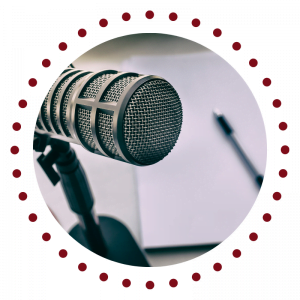
Want to be a Podcast Guest?
Check out our guest qualifications and submit our brief form to be considered.
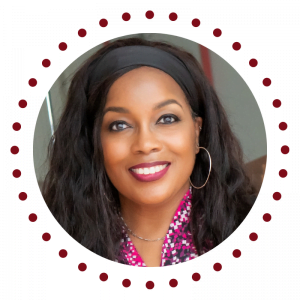
Want Karan to be Your Podcast Guest?
- Blended Workforces & the Gig Economy
- Critical Execution Tactics of High-performing Leaders
- Entrepreneurism & Leading Your Business
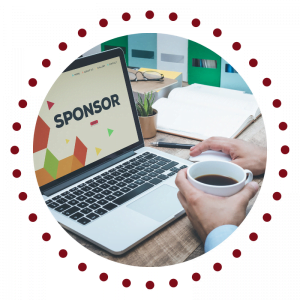
Want to be a Podcast Sponsor?
All sponsorships come with a featured spot on show notes pages.
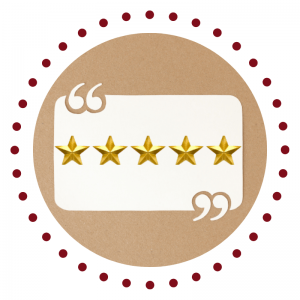
Like the Show? Please Leave a Review
If you like the show, it would mean the world to her if you left a quick review.
Your word is golden, so a HUGE thank you in advance!

#KeepInTouch
via our podcast alerts
Subscribe now to discover why thousands of monthly listeners who are passionate about doing their best work prioritize time each week to listen to the Blended Workforces @Work podcast.
#AboutSDL
#WhereToFindUs
MAILING
4480-H South Cobb Drive
PMB 219
Smyrna, GA 30080
PHYSICAL
2121 NewMarket Parkway
Ste. 108
Marietta, GA 30067
#ContactOptions
Customer Service Email:
service@shockinglydifferent.com
Call or Text:
770-384-1103
#Office Hours
MON-FRI
8:30 AM – 6:30 PM
Weekends By Appointment

